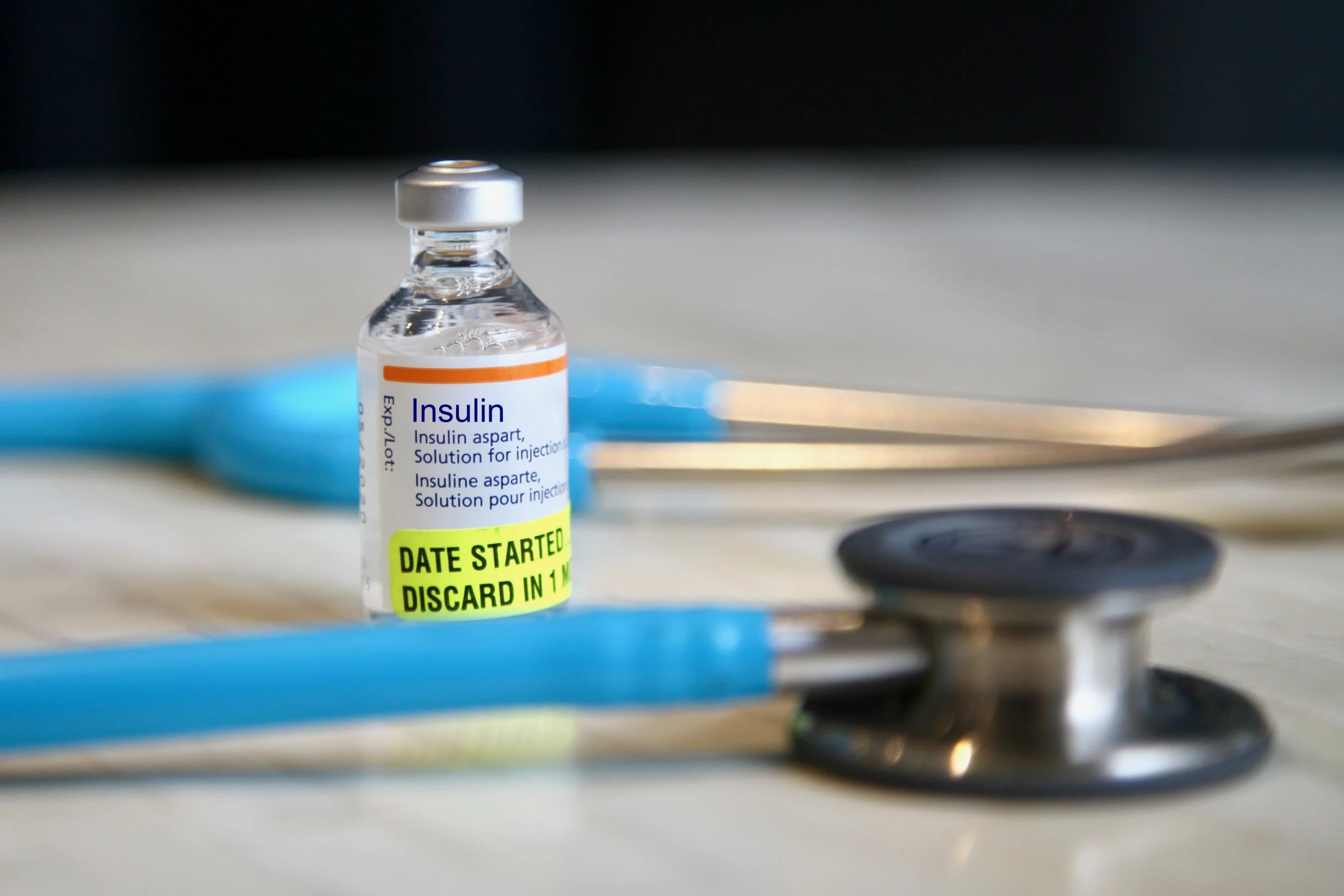National Pharmacare and type 1 diabetes (T1D)

The last week of February 2024, Breakthrough T1D Canada (then JDRF) staff joined Health Minister Mark Holland in Ottawa as the federal government officially announced the tabling of a framework for a National Pharmacare plan (Bill C-64).
This marked the first step towards a national universal pharmacare plan for Canada and a historic milestone for all Canadians living with type 1 diabetes (T1D) as the government announced that one of the first drugs to be covered as insulin. The announcement also included a specific intention from the government to provide universal, single-payer coverage for diabetes devices.
Implementation of Pharmacare
In order for the National Pharmacare Act to be implemented, the federal government must negotiate and reach an agreement with each of the provinces and territories.
Because these are individual agreements, the timing of when the program begins and what exactly is covered will vary depending on the province/territory.
On February 27th, 2025, Manitoba became the first province to sign on to the National Pharmacare program.
This marks the first major milestone of the National Pharmacare Act since the legislation was passed in October 2024.
We anticipate more provinces to reach agreements with the federal government in the coming weeks and months and we are monitoring the implementation of this program closely.
It has not yet been made clear by the federal government which specific insulins and diabetes management devices will be covered – even in the provinces that have recently signed agreements. We will include updates as more information becomes available.
Province-by-province coverage
Manitoba:
- On February 27th, 2025, Manitoba announced an agreement with the federal government
- Manitoba residents can anticipate beginning to receive coverage for insulin in June 2025.
- For more details: https://www.canada.ca/en/health-canada/news/2025/02/government-of-canada-signs-pharmacare-agreement-with-manitoba-to-improve-affordable-access-to-medications.html
British Columbia:
- On March 5th, 2025, British Columbia announced an agreement with the federal government.
- BC residents can anticipate beginning to receive coverage for insulin in March 2026.
- For more details: https://www.canada.ca/en/health-canada/news/2025/03/government-of-canada-signs-pharmacare-agreement-with-british-columbia-to-improve-universal-access-to-free-medications.html
Prince Edward Island:
- On March 7th, 2025, Prince Edward Island announced an agreement with the federal government
- PEI residents can anticipate beginning to receive coverage for insulin by May 1, 2025.
- For more details: https://www.saltwire.com/prince-edward-island/feds-announced-12-million-in-funding-for-adl-pei
Yukon:
- On March 20, 2025, Yukon announced an agreement with the federal government.
- Yukon residents can anticipate beginning to receive coverage for insulin no later than January 1, 2026.
- For more details: https://www.canada.ca/en/health-canada/news/2025/03/government-of-canada-signs-pharmacare-agreement-with-yukon-to-improve-universal-access-to-free-medications.html
Access For All’s Role in the National Pharmacare Plan
Launched in 2019, Access For All is Breakthrough T1D Canada’s advocacy program that aims to make living with type 1 diabetes (T1D) affordable and accessible for all Canadians with this disease.
Given the financial, physical and mental health burden of living with T1D, this campaign also works to improve access to:
- financial supports (such as the Disability Tax Credit);
- new therapies and treatments; and
- more investments in T1D research (read our 2024 Federal Pre-Budget submission).
The goal of Access for All is to improve the lives of those living with this disease in every way possible.
It is indisputable that out-of-pocket costs represents a significant financial burden for Canadians living with T1D.
A 2022 report published by Diabetes Canada offered insight into the out-of-pocket costs (costs assessed after reimbursement by public insurance programs) associated to managing T1D for Canadians across the country. While the share of out-of-pocket costs covered by governments varies from a low of 0% to a high of 100%, it was found by this report that over half of all persons living with T1D either experience out-of-pocket costs in excess of 3% of their family income or, given other financial burdens and lack of resources, fail to adhere to the treatment recommended by their doctor.
In some cases, this cost can exceed $18,000 per year, per individual living with T1D. Nobody should have to be onerously financially burdened because they have been diagnosed with a disease.
Insulin – a life-saving treatment varies in coverage and cost across Canada. A person with T1D needs daily exogeneous insulin, whether delivered by pump, pen or multiple daily injections to stay alive.
Breakthrough T1D along with advocates from the T1D community advocated the federal government to ensure that insulin was covered as part of a national pharmacare plan.
Learn more: breakthrought1d.ca/national-pharmacare-and-type-1-diabetes-what-you-need-to-know/
Breakthrough T1D also continues to advocate for the inclusion of diabetes devices such as advanced glucose monitors (continuous glucose monitors, flash glucose monitors, insulin pumps and hybrid closed-loop systems) in the pharmacare plan.
It is known that access to these technologies helps improve glucose control, reduce hospitalizations and ease some of the anxieties associated with living with a chronic disease.
But like insulin, diabetes device coverage varies across the country and is determined by the province.
See more: https://breakthrought1d.ca/advocacy/access-for-all/coverage-map/
It is Breakthrough T1D’s hope that the national pharmacare plan will include provisions to make up the difference between provincial coverage and any out-of-pocket expenses now being incurred by an individual or family affected by T1D.
Breakthrough T1D believes in patient choice and universal access. Together, with volunteers and advocates from the type 1 diabetes community we will continue to advocate all levels of government to ensure affordability, greater access and improved overall health outcomes for people living with T1D today, while we advance the most promising research into cures tomorrow.